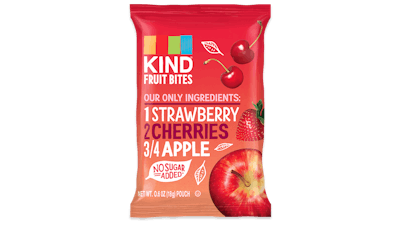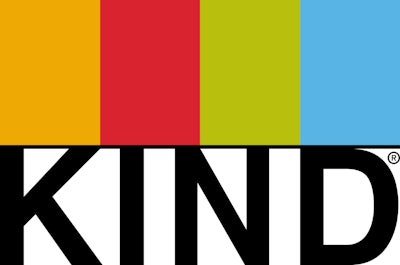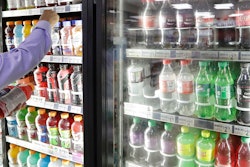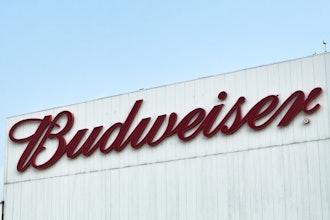
NEW YORK, NY — KIND Healthy Snacks is calling attention to the unnecessary use of synthetic dyes in a wide variety of foods consumed by children. The company not only hopes to highlight the excess use of synthetic dyes in obvious culprits — like cereals and sugary beverages — but also unexpected, seemingly-healthy foods like fruit snacks, yogurt and applesauce.
The consumption of dyes increased more than 5-fold since the 1950s, resulting in 43 percent of foods marketed to children now containing synthetic dyes. KIND is concerned that American kids are now accustomed to eating foods that are artificially colorful and less likely to try and enjoy foods that are naturally colored.

"Synthetic dyes are controversial and add no nutritional value to children's diets," says Stephanie Csaszar, KIND's Health & Wellness expert. "Typically, vibrant colors positively correlate to a food's nutrition and taste quality; however, synthetic dyes counteract this thinking. The food industry uses them to their advantage to enhance visual appeal, enticing children into eating them and parents into buying them."
To demonstrate how widespread the issue is, KIND today unveiled a public installation of test-tubes containing 2,000 gallons of synthetic dyes – the amount of dye American children roughly consume each day.3 The installation, on display in Herald Square in New York City, uses the eight synthetic dyes currently approved by the Food & Drug Administration (FDA) and highlights unexpected foods they can be found in – everything from microwave popcorn to pickles to fruit cups.
The display is meant to expose the increased prevalence of synthetic dyes in foods – an unfortunate growing trend. Over the past 60 years, there has been a five-fold increase in the consumption of synthetic dyes leading to an increase in children's individual consumption. Beyond candies and sugary beverages, synthetic dyes are now also found in 95% of fruit snacks, 86% of frozen breakfasts, 57% of fruit/pudding cups, 39% of chips and crackers, among other categories.4
"Since day one, KIND has been committed to balancing health and taste and adhering to our KIND Promise to craft snacks with a nutritionally-dense first ingredient," says Daniel Lubetzky, Founder and Executive Chairman of KIND. "When we launched KIND Fruit Bites, we were unwavering in our decision to not use synthetic dyes in an effort to elevate the current fruit snacks category. Our unsettling discovery of the issue at hand compelled us to act and educate parents on the use of dyes in their kids' foods so that they can make more informed eating decisions."
"As a pediatric registered dietitian, and mom of two boys, I take great pride in encouraging the consumption of foods that contain ingredients found in nature," says Lara Field, registered dietitian and founder of FEED Nutrition Consulting. "Children are born with a clean slate. One that is shaped daily by the foods we routinely offer. We need to continue to educate our youth to put foods in their bodies that make them strong, energized, and support long term health."






















